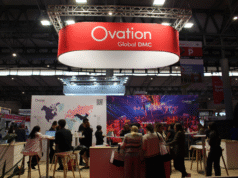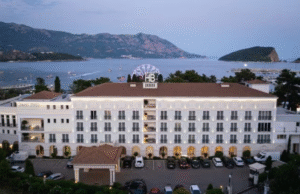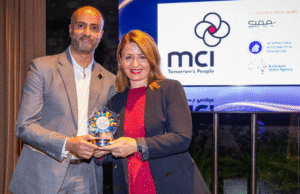Which expert association do we trust most?
On behalf of Kongres Magazine’s readership, we organised a provocative survey on LinkedIn with a simple yet compelling question: which expert association in the events industry do we trust most?
Here is the introduction to the subsequent survey: In the global meetings industry, certain associations establish standards, advocate for the common interests of the community, and promote the professional development of their members. But the question remains: which association do we trust most? The survey, viewed by 3,111 followers, was completed by 103. For a statistically credible result, we would need over 300 responses. Hence, the survey results cannot be deemed credible. Still, they do show which associations can be considered most trustworthy in the industry. You can peruse the survey here. Despite the small number of responses, I received a slew of intriguing comments and replies confirming that the topic is worth further investigation. The survey even prompted a provocative dilemma: can artificial intelligence replace expert associations in the future?
The survey culminated in a debate about who is the most credible voice in the events industry today.
The survey culminated in a debate about who is the most credible voice in the events industry today and who is the trendsetter, whether in quality, knowledge sharing, integrity, or transparency. Moreover, it helped us learn which association works transparently, openly, and for the common good of the community, aspiring to co-create the future of the industry.
To provide even more in-depth insights, I reviewed the survey results of the annual Kongres Barometer. Below is a table showing the responses to the following question: “How satisfied are you with MICE associations as marketing generators?”
| 2025 | 2024 |
|
|

Too much white noise and too little effect
The most surprising facet of the table is that as many as 38.5% of respondents answered ‘neutral’. That can be understood as implicitly stating: “I don’t know. I have no opinion. I don’t feel any effects. I could not care less.” Being on the fence in this context is not an ambivalent response, but denotes a lack of belonging to associations or their (ir)relevance.
Despite a minimum growth, the percentage of those who are completely satisfied remains a low 9.2%. In a world where trust is the new value, these numbers should be a concern for anyone in charge of an expert association. Today, trust is no longer synonymous with titles, logos, or date of establishment. People seek true values, content, authentic connections, and, above all, proof. They wish to find an association that they can still trust in today’s world of disinformation. This demand is even more prevalent with new generations entering the events industry. These are generations that have no respect for hierarchy unless it is earned; people who do not follow institutions unless they publish results; and who only trust those who build trust every day, not those who expect it in line with the inertia of tradition. Houston, it seems we have a problem – or an opportunity, if we know how to address it.
Too much white noise and too little effect
A sea of expert associations in the events industry are pestered by the syndrome of too much white noise and too little effect. Their posts are regular, their words grandiose, yet the effect remains negligible. Being present on social media platforms is not a replacement for credibility.
If your own community does not recognise you as a relevant interlocutor, you are just one among many organisations that dwell on the past, yet lose their future.
One of the key results of the research confirms this thesis. Respondents most often selected word of mouth as their preferred source of receiving information. Let’s examine these intriguing results closely. The question we posed was: “Which source of information do you trust most?”
| 2025 | 2024 |
|
|
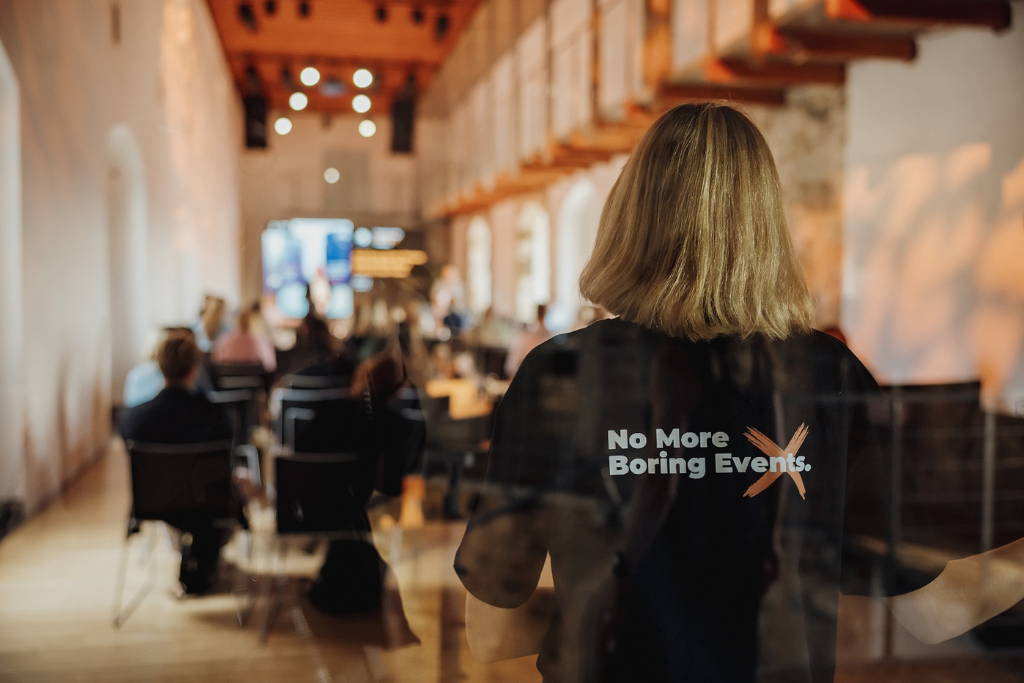
The syndrome of becoming a member for the sake of it
What about formal institutions? Associations? Most of them remain in the grey area, without significant recognition and lacking real trust. Therefore, the message is crystal clear: if associations fail to build trust with content, actions, and integrity, they will lose their role as the leading source of knowledge and influence. You can be the judge of which associations have already experienced this and vice versa.
The syndrome of becoming a member for the sake of it
In numerous expert associations, a trend is emerging that could be described as the syndrome of becoming a member just for the sake of it. Many industry experts don’t join an association because they value their content or see their development potential, but because becoming a member is a social or organisational expectation. Being a member just for the sake of it is a formality without any genuine affiliation. Similarly, the membership fee is just another annual fee with no benefits for the company.
In this environment, a membership fee has stopped being a guarantee for loyalty a long time ago. When an association fails to offer relevant content, ample opportunities for knowledge exchange, market visibility, or tangible benefits, membership quickly drifts into a grey area. Although you may be a member, you are a silent observer whose voice seems irrelevant.
But we should not forget that this is not a mistake on the side of the members. This is a systemic predicament that shows associations are no longer what they used to be. Instead of giving the tools to their communities, associations have become a tool in and of themselves – organisational instruments that maintain their structure, but lose their soul.
Today, members seek not only belonging but connections, impact, and relevance. If they cannot find this within associations, they will conjure up new platforms themselves – where they will be heard, not only “enrolled”.
Associations as corporations
The latest development phase of associations in the events industry reflects corporations in today’s world. In other words, the services that associations offer to their members are considered commercial products. The list of these services resembles a menu with countless additional toppings and condiments. The central products of such corporate associations have become event fees. Just a glimpse at the prices and structure of event fees reveals which associations have transformed into companies whose primary goal is to optimise income and drive future growth.
The question that arises is plain: do we earnestly hope that our industry is advocated by associations that function as profit-driven corporations instead of guardians of our community’s interests? Associations should serve their members, champion the needs and wants of the industry, and create the prerequisites for future development, rather than treating their members as numbers in a sales funnel or as data in their big-data models.
When did this tectonic shift occur? Why is this transformation particularly problematic for associations that deem themselves global? Instead of leading the industry, global associations often garner information, sell access to content, and monetise membership fees, while creating the impression that they are advocating for the entire industry. In reality, they only perpetuate the imbalance of power, favouring large companies and marginalising smaller markets and individuals who cannot afford to pay the exorbitant membership fees.
Such associations are becoming centralised platforms that prioritise profits under the guise of global impact.
Such associations are becoming centralised platforms that prioritise profits under the guise of global impact. They do not create a democratic space, but only commercialise it. Instead of prompting dialogue, they filter it through paid formats. They do not represent the whole industry, only the most profitable part.
This philosophy has cost associations their fundamental role and essence. This is a dangerous, almost final deviation from the idea of expert associations as independent institutions that champion the interests of the events industry without catering to commercial pressures or becoming a source of income.
Do you wish to become a member of an association that creates a negative dystopia instead of a positive utopia? I, for one, refuse to, and remain certain that the events industry shouldn’t either – at least an industry that is based on cooperation, trust, and connecting.
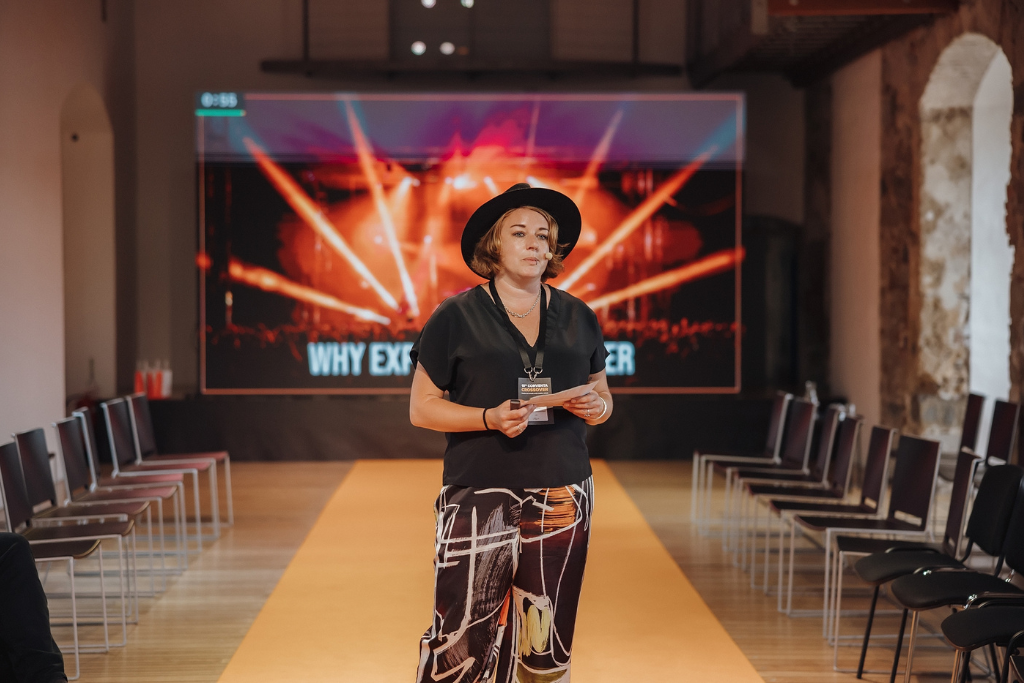
Content that pushes the envelope
When an expert association begins to display signs of a corporation, members unwillingly transform into customers, and the community becomes a market. The second that profits begin to matter more than the core mission, an association ceases to be the voice of the industry, turning into yet another leech that drains the life from the industry instead of reinvigorating it.
Perhaps the best way to understand the content that pushes boundaries is to see it from a different perspective: what type of content is least popular on social media platforms?
The latest data from our Kongres Barometer shows the brutal reality. The five least popular topics on social media platforms in 2024 and 2025 include:
- Poor, irrelevant, or surface-level content (54.1 % versus 60.5%)
- Too much self-promotion (46.2% versus 461%)
- Unattractive visual material (36.9% – 2025 only)
These numbers reveal an indisputable truth: today’s audience penalises poor communication. It condemns self-promotion without value and looks without profound meaning.
Here is where the true challenge lies for numerous international expert associations: instead of leading with inspiring, compelling content, they often walk into a mousetrap: communication that is more about keeping up appearances than creating real value. Far too many posts are directed toward self-promotion and few toward transformative knowledge. Formalities, protocols, and photos from event stages take precedence over relevant research, studies, standards, innovation, novel tools, or real scientific debates. The events industry needs no more PR machines. We require eye-opening content that goes beyond theory and strengthens the industry.
76% of all posts are tied only to the destination where an event or congress takes place. Only 24% of posts carry a relevant context or purpose.
Throughout autumn, this has been demonstrated in the meta-analysis of LinkedIn posts from the central trade shows within the industry from September to November 2025. After conferring with AI, I dissected the structure of posts and articles, concluding that 76% of all posts are tied only to the destination where an event or congress takes place. Only 24% of posts carry a relevant context or purpose.
It is hard to say whether this is due to a systemic lack of communication strategies or simply an absence of content worth sharing. As long as we allow destinations to reign supreme with their irrelevant posts, we are creating a setting, not a breakthrough. It is high time we stop admiring locations and start investing in game-changing content. In other words, we need fewer postcards and more vision.
How should an association of the future look?
If we attempted to create a modern, relevant, and trustworthy association from nothing, it would be based on ten simple, yet core principles that we can decipher from messages we received regarding our LinkedIn survey:
1. Prioritising the community
Members are not numbers. An association should listen to its needs daily, not only during its annual surveys.
2. Inclusivity without exception
Each process should be transparent, from the elections, budgets, to the final decisions (without any decision-making behind closed doors).
3. Members show the way, the association makes it happen
The community should serve as the guide, while the management should make the goals a reality. Leadership is not there to rule but to serve.
4. Tangible value
Associations shouldn’t sell events – they should offer real-time solutions, useful tools, and daily support.
5. Prioritising the industry over sponsors
Know-how, standards, and guidelines – these should be the pillars of the industry, not content tailor-made for patrons.
6. Measurable results
The effects of associations should be tangible, measurable, and contribute to the prosperity of society and the industry.
7. Doors wide open
Membership should be accessible. Smaller, new, or niche stakeholders should be equal to established partners.
8. A never-ending dialogue
An association should always allow space for critiques, suggestions, and debates. Most importantly, an association should take note of the feedback and try to improve.
9. Leadership with integrity
Competent, responsible, and ethical leaders must be transparent and willing to step down when the time comes.
10. Community know-how
Expert groups should connect people, foster ideas, and propel the industry forward.
This type of association shouldn’t be a utopia – it should be proof that a future-facing community can also create a common future. This led us to create the following association manifesto:
Manifesto of the associations of the future
An association of the future is not only a corporation, but a community that lives on trust, not tradition. Its power stems from content, integrity, and impact on the community, not from membership fees.
Here are its five core values:
Community – members are co-creators, not passive observers
Transparency – each process and budget is transparent
Integrity – the industry is always prioritised over sponsors (purpose over income)
Content – know-how, standards, and skills that change the industry
Inclusivity – inclusive access, open dialogue, and room for all
Such a future-facing association need not measure the size or number of attendees at its annual congress, but the level of trust among members. It doesn’t follow trends, but co-creates them hand in hand with its members.
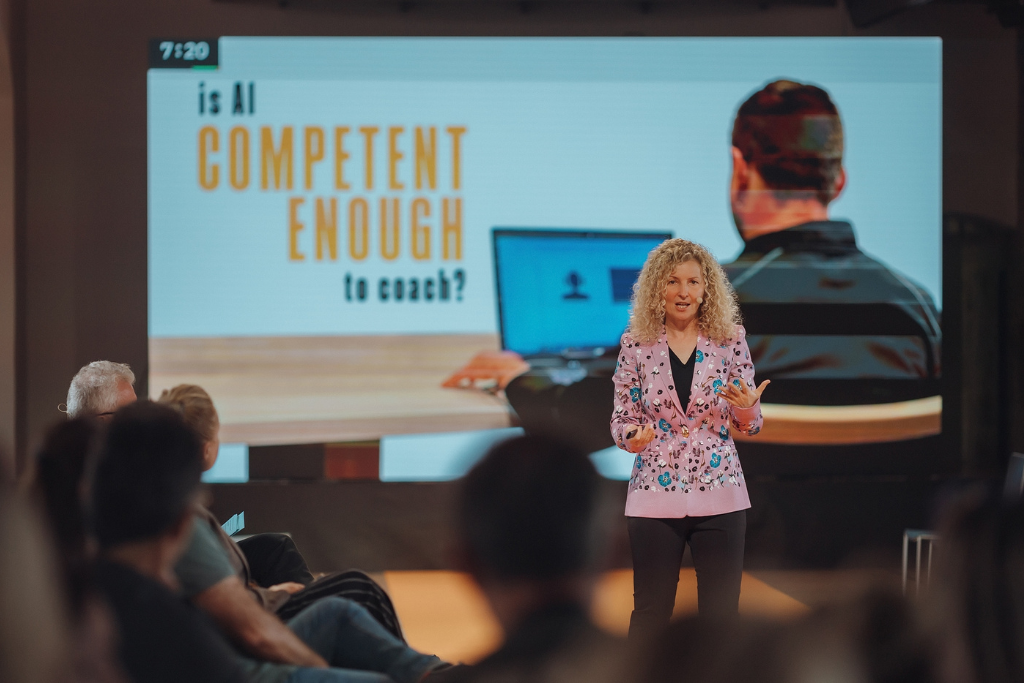
Could AI create the ideal association of the future?
Artificial intelligence has the potential to become one of the key drivers of transformation in associations. It can streamline most tedious tasks, remove bureaucratic hurdles, and establish a level of transparency hitherto unseen. Moreover, it helps organisations track the needs of communities, analyse data in real time, and make decisions that are not influenced by personal interests. AI can establish a more transparent, fair, and inclusive decision-making process where no voice is drowned by the sounds of hierarchy. Not least, artificial intelligence can safeguard an association’s standards as an impartial integrity tracker and intelligence data manager.
AI can help create a fairer, effective, and open association, but it cannot replace the community of people that give it substance.
Still, the line between human and AI is clear…
AI can build the structure of an association, but it cannot create its soul. It cannot replace trust, authentic human relations, the sense of belonging, psychological safety, or a common identity – elements that help an association prosper in the first place. In other words, AI can help create a fairer, effective, and open association, but it cannot replace the community of people that give it substance.
At the end of the day, the question is not who “won” in our LinkedIn survey. The actual question that must be posed is why some associations continue to lose trust, why more and more industry experts are ambivalent towards associations, and why some prefer to expand their personal networks instead of joining established associations. The events industry is built on trust. If this trust cannot be ensured by associations any longer, who knows who (or what) will? The future won’t belong to associations with the most members, but to those that know how to instil trust among their members. The winner is the one whom people trust the most, not the one with the most followers.
Instead of a conclusion: how does AI understand trust in international associations?
We posed a simple question to ChatGPT: Which five expert associations in the events industry can be trusted the most?
As ChatGPT becomes an indispensable reference tool even in the events industry, it is insightful to see how it segments associations based on their expertise, integrity, and impact. Based on the mentioned criteria segments, ChatGPT created the following rankings (from 1 to 5):
- ICCA – International Congress and Convention Association
- IAPCO – International Association of Professional Congress Organisers
- PCMA – Professional Convention Management Association
- SITE – Society for Incentive Travel Excellence
- UFI – The Global Association of the Exhibition Industry
A call to action to international associations and colleagues!
We invite you to share your thoughts, experiences, and suggestions on associations that may have been overlooked in our research. We invite you to share best practice cases that inspire, are overlooked, or warrant further examination. Every voice counts.
Editorial by Gorazd Čad





